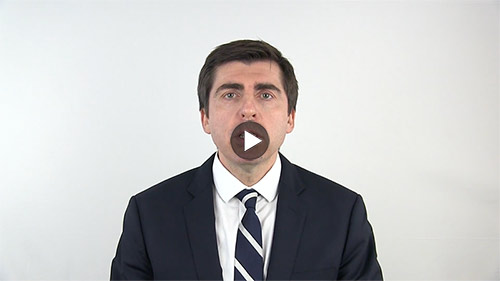Obesity is a complex, chronic disease with many health, longevity, and quality of life consequences – but it can be treated.
As a combination of physiological, emotional, genetic, and environmental factors may be contributing to excess body fat, the best approach to dealing with this problem is to work with a medical professional who is at the leading edge of the latest advances in weight loss causes and treatments.
Vadim Gritsus, M.D. is an experienced New Jersey bariatric surgeon with advanced laparoscopic training and deep knowledge and experience in bariatrics (weight loss surgery). Obesity is a leading cause of death for both men and women in the U.S. Dr. Gritsus believes that people who make the decision to undergo bariatric surgery need to do so not only for cosmetic reasons, but to increase longevity and improve quality of life.

Treatment for Obesity
Treatment for obesity will vary from person to person, depending on the factors contributing to the disease. When you begin an obesity treatment program, there may be several different specialists involved in your treatment, for example:
- Endocrinologist to treat low thyroid, other hormone problems, or Type II Diabetes
- Trainer or exercise physiologist to determine your fitness level and plan suitable exercise and physical activities
- Dietician or nutritionist for guidance in developing healthier eating habits
- Bariatric surgeon if weight loss surgery is recommended for you
Types of Obesity Treatments
After any endocrine problems or Type II Diabetes have been medically addressed, treatment for obesity falls into 6 different basic categories:
Dietary Changes
Healthier eating and reducing total calories are essential to overcoming obesity. Slow and steady weight loss is the safest way to lose weight and keep it off in the long run. Eating lower density foods, such as fruits and vegetables – foods that give you a larger portion size with fewer calories – can help you cut back on calories while still reducing hunger pangs.
Exercise and Activity
Regular exercise is vital to any weight loss program. According to the Mayo Clinic, obese people need a minimum of 150 minutes per week of moderate physical activity to maintain modest weight loss, and 300 minutes or more a week to achieve more significant weight loss. It is a good idea to increase your exercise gradually as your fitness level improves.
Lifestyle and Behavioral Changes
Examine your current habits and activities to determine which stresses, situations, and factors are contributing to your weight problems, and work to make the appropriate changes. If you are likely to overeat while watching TV, try to establish new activities to break the habit. If it is difficult to motivate yourself to work out once you get home, bring your workout clothes with you and stop at the gym immediately after work.
Weight Loss Medications
Weight loss drugs may be an option for some people. However, medications should only be used as part of a comprehensive program that includes diet, exercise, and lifestyle changes. Dr. Gritsus provides comprehensive weight loss treatment, which may include medications for weight loss such as Belviq, Contrave, or Saxenda.
Please contact our office to schedule a consultation to find out if medical weight loss management is right for you.
Weight Loss Surgery
Although it not recommended for everyone, bariatric surgery is an effective treatment option for many obese patients. Weight loss surgical procedures include:
Bariatric surgery may be recommended for patients who are morbidly obese or obese with associated health problems. To learn more about these procedures and whether weight loss surgery is right for you, call the office of Vadim Gritsus, M.D. to schedule a consultation.
Schedule a Consultation Today
Call today to schedule a private consultation in New Jersey

